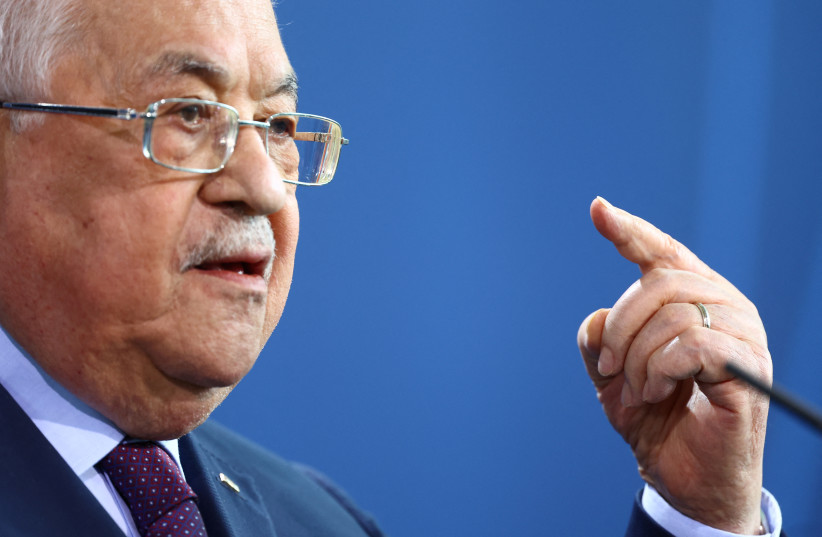Former Palestinian leader Yasser Arafat was convinced that Palestinian Authority President Mahmoud Abbas was conspiring against him at the behest of Israel and the US, according to classified documents leaked to Palestinian media outlets over the past few days.
The documents consist mostly of the testimonies of senior Palestinian officials who appeared before a special commission set up by the PA to investigate the circumstances surrounding the death of Arafat in November 2004.
It remains unclear who stands behind the leaks. Moreover, it is not clear whether the documents were authentic, with senior Palestinian officials refusing to confirm or deny their authenticity.
What do the Palestinian leaks say?
The testimonies showed that a large number of Palestinian officials were convinced that Arafat’s death was caused by foul play.
Arafat, according to the officials, was also convinced that he was facing a regional and international conspiracy to remove him from power after the start of the Second Intifada in 2000.

The documents revealed the extent of the bad blood that prevailed between Arafat and Abbas and showed that most of the leaders of the Arab countries had distanced themselves from the former Palestinian leader after the eruption of the Second Intifada.
One Palestinian official who testified before the commission of inquiry claimed that Arafat despised Abbas to a point where he once called him a “son of a bitch” and likened him to Hamid Karzai, the former president of Afghanistan who was widely condemned as “America’s chief puppet.”
The commission of inquiry, which has never published its findings, is headed by Tawfik Tirawi, a former commander of PA General Intelligence who was recently dismissed by Abbas from his job as head of the board of trustees of Jericho-based Al-Istiqlal University, the Palestinian Academy for Security Science.
Tirawi, a member of the Fatah Central Committee, has in recent years become a vocal critic of Abbas and the PA leadership.
According to unconfirmed reports, Abbas decided to punish Tirawi after the latter criticized the PA president’s decision to appoint Fatah official Hussein al-Sheikh as secretary-general of the PLO Executive Committee. Sheikh is seen by some Palestinians as a front-runner to succeed Abbas.
The documents appeared in a number of Palestinian media outlets shortly after the dismissal of Tirawi, sparking speculation that he might be behind the leaks as part of an attempt to embarrass Abbas and his top aides.
Tirawi, however, said the document leak was part of an organized attack aimed at “assassinating” his reputation and disrupting the work of the commission of inquiry into the death of Arafat.
He said the heads of the Palestinian security forces have ignored his demand to investigate the document debacle.
Tirawi hinted that some of the documents were obtained by hackers and vowed to “follow up in every way this piracy process and bring the perpetrators to trial.”
In his statement before the commission of inquiry, former PA interior minister Hakam Balawi said Fatah leaders were aware of the dispute between Arafat and Abbas.
“Abu Mazen [Abbas] is a temperamental person who did not like Abu Ammar [Arafat], and he had personal ambitions within Fatah and the Palestinian Authority,” he was quoted as saying. “At all times, there was a rupture between them. There was no respect between the two, and we as members of the [Fatah] Central Committee were aware of the extent of Abu Mazen’s hatred for Abu Ammar and his objection to many of his decisions.”
The members of the commission of inquiry asked Balawi whether he had ever heard Arafat call Abbas the “Karzai of Palestine.”
“Yes, I heard this from him directly,” he replied. “He [Arafat] considered Abu Mazen to be affiliated with Israel and America and that he was working against him.”
Balawi was also quoted as having told the commission of inquiry that Arafat felt pain and bitterness when Abbas became prime minister of the PA in 2003 under Western and Israeli pressure.
“I recall that on one occasion he [Arafat] cursed him and called him ibn sharmouta [son of a bitch],” according to Balawi’s August 2, 2012, testimony.
Jamal Muhaissen, another senior Fatah official, told the commission of inquiry on May 7, 2014, that the dispute between Arafat and Abbas was “very deep.” “The whole truth about the dispute is embarrassing and shameful,” he said.
Nabil Abu Rudaineh, who served as Arafat’s spokesman, was quoted as having confirmed to the commission that there was a “wide gap” between Arafat and Abbas.
“There are many details that I can’t divulge. The Palestinian leadership has a red line.”
Nabil Abu Rudaineh
“There are many details that I can’t divulge,” Abu Rudaineh, who currently serves as PA presidential spokesman, said in a statement to the commission on July 28, 2012. “The Palestinian leadership has a red line.”
Former PA prime minister Ahmed Qurei (Abu Ala’) also appeared before the commission of inquiry, according to a document dated July 30, 2012. He, too, confirmed that Arafat believed that Abbas was in cahoots with Israel and the US to remove him from power.
“It’s true that several people who were close to Abu Ammar wanted to get rid of him for personal goals,” Qurei told the commission. “But at the time, I remember very well that Abu Mazen, in most of his meetings with diplomats and politicians, used to hint at Abu Ammar’s role in foiling the peace efforts [with Israel]. Of course, this is defamation. He [Abbas] sought to distort his [Arafat’s] image among the international community. Abu Mazen relied on Israeli and American backing and saw himself as the most powerful official.”
Qurei was also quoted as saying that “some Palestinian personalities practiced political assassination” against Arafat with the hope of stripping him of his powers and turning him into a ceremonial figure.
